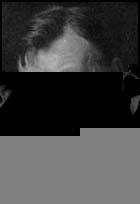George Buchanan

George Buchanan was born in Glasgow, Scotland in 1890. After leaving school he became a pattenmaker. His friend, David Kirkwood, later remarked that he "knew the human side of poverty better than any of us."
Buchanan joined the Independent Labour Party and began working closely with other socialists in Glasgow including John Wheatley, Emanuel Shinwell, James Maxton, David Kirkwood, Campbell Stephen, William Gallacher, John Muir, Tom Johnston, Jimmie Stewart, Neil Maclean, George Hardie and James Welsh.
Buchanan was vice-chairman of Glasgow Trade Council and represented Gorbals on the City Council (1919-23). In the 1922 General Election Buchanan was elected to the House of Commons for Gorbals. Also successful were several other militant socialists based in Glasgow including David Kirkwood, John Wheatley, Campbell Stephen, Emanuel Shinwell, James Maxton, John Muir, Tom Johnston, Campbell Stephen, Jimmie Stewart, Neil Maclean, George Hardie and James Welsh.
In 1932 Buchanan became chairman of the United Patternmakers Association of Great Britain. A position he held for sixteen years. Buchan joined the Labour Party in 1939.
Following the 1945 General Election, the new prime minister, Clement Attlee, appointed Buchanan as Under-Secretary of State for Scotland. He also served as Minister of Pensions (October 1947 to July 1948).
Buchanan retired from Parliament in 1948 to became Chairman of the National Assistance Board (1948-1953). George Buchanan died on 28th June 1955.
Primary and Secondary Sources
(1) David Kirkwood described his election to the House of Commons in his autobiography My Life of Revolt (1935)
From the outside circumference of the city to its very heart, Glasgow was ringing with the message of Socialism. Within a week of the election day, it seemed likely that the whole team of eleven would win, that Bonar Law would be defeated, and that Socialism would be triumphant. Such energy, enthusiasm, and earnestness had not been known in Glasgow for generations. There we were, men who a few years before had been scorned, some of us in jail and many more of us very near it, now being the men to whom the people pinned their faith.
When, at last, the results were announced, every member of the team was elected - except our champion of the Central Division. What a troop we were! John Wheatley, cool and calculating and fearless ; James Maxton, whose wooing speaking and utter selflessness made people regard him as a saint and martyr ; wee Jimmie Stewart, so small, so sober, and yet so determined ; Neil MacLean, full of fire without fury; Thomas Johnston, with a head as full of facts as an egg's full o' meat ; George Hardie, engineer and chemist and brother of Keir Hardie; George Buchanan, patternmaker, who knew the human side of poverty better than any of us; James Welsh, miner and poet from Coatbridge, John W. Muir, an heroic and gallant gentleman; and old Bob Smillie, returned for an English constituency though he was born in Ireland and reared in Scotland.
We believed that this people, this British folk, could and were willing to make friends with all other peoples. We were ready to abandon all indemnities and all reparations, to remove all harassing restrictions imposed by the Peace Treaties. We were all Puritans. We were all abstainers. Most of us did not smoke. We were the stuff of which reform is made.
